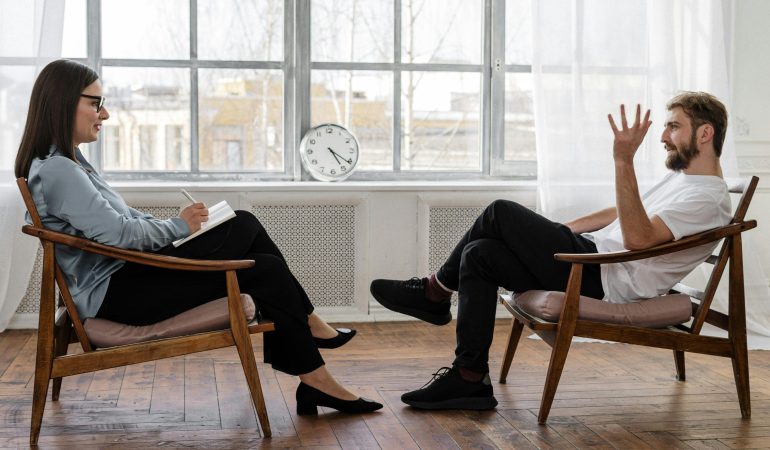
Freudian psicodrama
Psychodrama, a therapeutic technique created by Jacob Levi Moreno, has been reinvented and enriched by various theorists over time. Among them, Gennie and Paul Lemoine have developed a unique approach known as Freudian Psychodrama, which fuses the principles of classical psychodrama with the psychoanalytic theory of Sigmund Freud.
This methodology seeks to explore and resolve internal conflicts through the dramatization and analysis of dreams, desires and repressed traumas.
Fundamentals
Freudian Psychodrama is based on the premise that the unconscious significantly influences human behavior. The Lemoines integrate Freudian concepts of the structure of the psyche (id, ego, and superego) and defense mechanisms into the psychodramatic process. Through dramatic action, participants are able to externalize and confront their internal conflicts, allowing for deeper understanding and resolution.
The Role of the Animator and Observer
In Freudian Psychodrama, the facilitator plays a crucial role. In addition to guiding the dramatization, the facilitator also acts as an analyst who helps participants interpret the symbolic meanings of their actions and dialogues. The facilitator must be able to create a safe and supportive environment where participants feel free to explore their deepest emotions and memories.
The observer, although his presence is mute at first, will later give his word, through listening to the unconscious: lapses, what happened in the scenes, the difference between what was recounted and what was expressed. He presents to the subject what he repeats from his past and to the group the key signifier that flows between him.
The Psychodramatic Process
The psychodramatic process in the Freudian approach includes several stages:
- Role-playing: Participants dramatize personal situations and conflicts, often recreating scenarios from their real lives or from their fantasies and dreams.
- Role reversal: This is used so that participants can experience different perspectives and emotions, facilitating greater empathy and understanding.
- Analysis and Reflection: After the dramatization, a deep analysis is carried out where the symbols and meanings of the actions are interpreted, relating them to the unconscious and Freudian theory.
Applications and benefits
The benefits of Freudian Psychodrama are numerous. This therapeutic approach allows participants to:
- Expressing Yourself Freely: Dramatization offers an avenue for emotional expression that is not always possible through traditional verbal therapy.
- Connecting with the Unconscious: The integration of Freudian theory facilitates access to repressed desires and conflicts, promoting greater self-understanding.
- Resolving Conflicts: By externalizing and dramatizing internal conflicts, participants can find more effective solutions and ways of coping.
- Encourage Creativity: The use of dramatization stimulates creativity and imagination, enriching the therapeutic process.
My expertise
Opening Hours
- 08AM-12PM
- Free Day
- 08 AM- 12PM
- 08 AM- 12PM
- 08 AM- 12PM
- Closed

